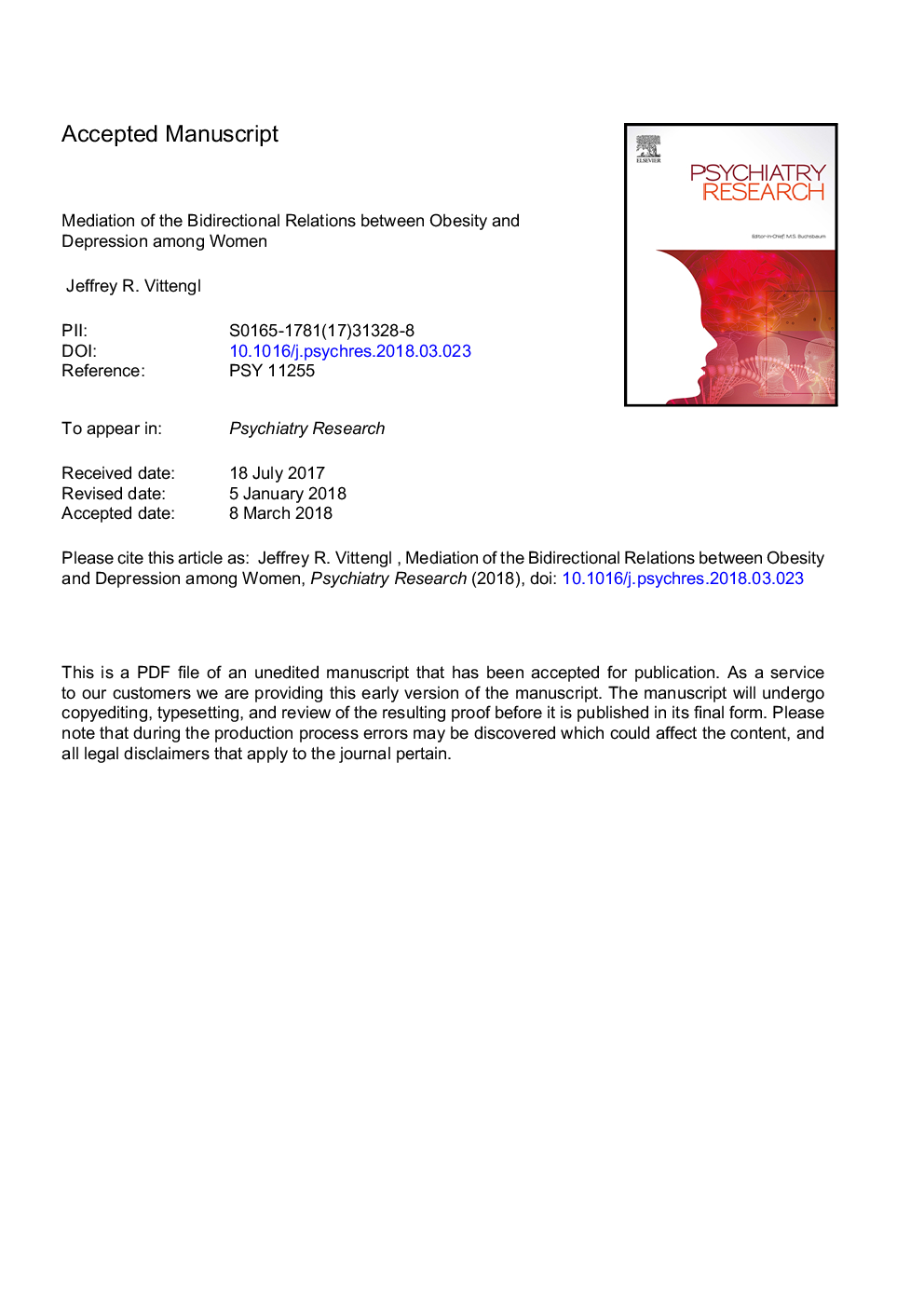| Article ID | Journal | Published Year | Pages | File Type |
|---|---|---|---|---|
| 6811586 | Psychiatry Research | 2018 | 28 Pages |
Abstract
Past research established that obesity increases risk for development of depression, and depression increases risk for development of obesity. The current study tested physical impairment (difficulty with instrumental activities of daily living), social dysfunction (low social support and high social strain), and emotional eating (using food to cope with stress) as mediators of the bidirectional, longitudinal relations between depression and obesity. A national sample of mid-life adults in the United States (Nâ¯=â¯7108) was assessed at three time points over 18 years. Depression predicted increases in obesity, and obesity predicted increases in depression, for women but not for men. Among women, path analyses revealed that physical impairment, social dysfunction, and emotional eating mediated development of obesity from depression, and that physical impairment and emotional eating mediated development of depression from obesity. These results suggest that prevention or treatment of obesity-linked depression and depression-linked obesity in women may need to address multiple connections between these disorders.
Keywords
Related Topics
Life Sciences
Neuroscience
Biological Psychiatry
Authors
Jeffrey R. Vittengl,
